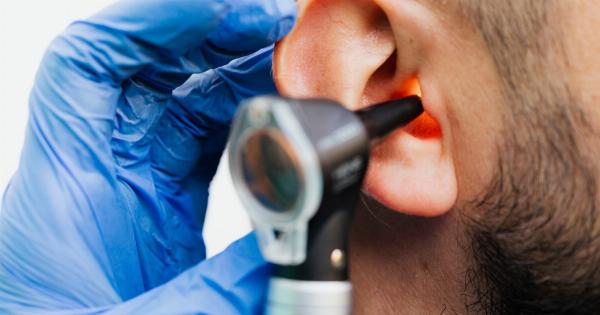Ear pain can really be annoying and disturbing. It is often associated with a feeling of fullness, pressure, or discomfort in the ear. Pain in the ear can affect anyone, irrespective of age and gender.
It can be sharp, dull, or throbbing, and the intensity can range from mild to severe. The pain can be experienced in one or both ears, and it can be accompanied by other symptoms such as fever, dizziness, or discharge from the ear. In this article, we’ll take a look at the various causes of ear pain and some remedies you can try.
Causes of Ear Pain
Ear pain can be caused by various factors. Some of the common causes include:.
1. Ear infection:
An ear infection is the most common cause of ear pain. Infections can occur in any part of the ear, including the outer ear, middle ear, and inner ear. Ear infections are more common in children than adults.
They are usually caused by viruses or bacteria, and the symptoms can include ear pain, fever, and difficulty hearing.
2. Earwax buildup:
Earwax is a natural substance that helps protect the ear canal from dust, dirt, and other foreign objects. However, when too much earwax accumulates in the ear canal, it can cause a blockage and lead to ear pain and discomfort.
3. Foreign object in the ear:
Small objects like beads, toys, or insects can sometimes get stuck in the ear canal, causing pain and discomfort. This is more common in children who tend to put foreign objects in their ears.
4. Perforated eardrum:
The eardrum is a thin membrane that separates the middle ear from the outer ear. When it tears or ruptures, it can cause ear pain, dizziness, and a buzzing or ringing sound in the ear.
Ruptured eardrums are usually caused by exposure to loud noise, trauma to the ear, or sudden changes in air pressure.
5. Sinus infection:
Ear pain can also be caused by a sinus infection. When the sinuses become inflamed and swollen, they can put pressure on the surrounding tissues, including the ear canal, causing pain and discomfort.
6. TMD:
Temporal mandibular disorder (TMD) is a condition that affects the jaw joint. When the joint becomes inflamed or damaged, it can cause pain and discomfort in the ear, along with other symptoms like jaw pain and difficulty opening the mouth.
7. Swimmer’s ear:
Swimmer’s ear is a condition that is caused by excess moisture in the ear canal. It is more common in people who swim frequently, and the symptoms can include ear pain, itchiness, and redness.
8. Allergies:
Allergies can sometimes cause ear pain. When the body’s immune system reacts to allergens like pollen or dust, it can cause inflammation in the nasal passages, sinuses, and ears, leading to pain and discomfort.
Remedies for Ear Pain
The treatment for ear pain depends on the underlying cause. Here are some remedies that can help relieve ear pain:.
1. Warm compress:
Placing a warm compress on the affected ear can help reduce the pain and discomfort. You can use a heating pad, a hot water bottle, or a towel soaked in warm water. Make sure the compress is not too hot to avoid burning the skin.
2. Over-the-counter pain relievers:
You can take over-the-counter pain relievers like ibuprofen or acetaminophen to help reduce the pain and swelling. Follow the dosage instructions on the label.
3. Ear drops:
If the ear pain is due to an infection, your doctor may prescribe ear drops to help reduce the pain and inflammation. Follow the instructions on the label carefully.
4. Avoid putting anything in your ear:
Do not insert anything in your ear, including cotton swabs or earplugs. This can further irritate the ear and worsen the pain.
5. Stay hydrated:
Drinking plenty of fluids can help prevent infections and reduce the risk of ear pain.
6. Address allergies:
If your ear pain is due to allergies, you can take antihistamines or allergy medications as directed by your doctor.
7. Manage stress:
Stress can increase the risk of ear pain, so finding ways to manage stress can help prevent it.
8. Practice good ear hygiene:
Regularly cleaning your ears can help prevent earwax buildup and infections. Use a damp cloth to clean the outside of your ear and avoid using cotton swabs or other objects.
Final thoughts
Ear pain can be a nuisance, but it is usually not serious. In most cases, it can be managed with home remedies and over-the-counter medications.
However, if the pain persists or is accompanied by other symptoms like dizziness or discharge from the ear, you should see a doctor immediately.






























